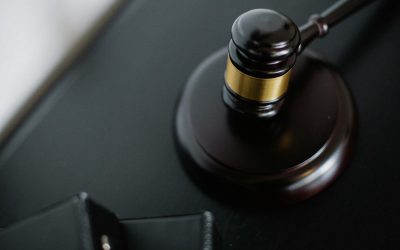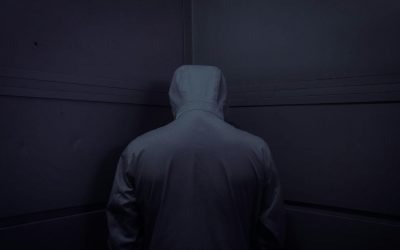Keeping Your Head Above: The Importance of Identity

Photo by Ruben Christen
Serious Consequences: Losing Everything Including Identity by David W. Stewart is a thrilling portrayal of what it’s like to be in the Witness Protection Program. Keeping your head above can be a pain!
In David W. Stewart’s Serious Consequences: Losing Everything Including Identity, the Witness Protection Program is a very important part of the plot. The Witness Protection Program (WPP) offers a vital lifeline to those who are risking their lives by coming forward against powerful criminal organizations or corrupt individuals.
The WPP provides a new identity, relocation, and support services, aiming to ensure the safety of witnesses and their families. While the program undoubtedly saves lives, the psychological consequences of losing one’s identity are often under-discussed.
Witness protection isn’t just about changing names and addresses, as you might see in films. It’s a constant state of living a lie, a burden that can erode a person’s sense of self. Keeping your head above everything can be exhausting and debilitating.
How WPP Erases History
The core consequence of the WPP is the loss of personal history. Leaving behind families, friends, careers, and even cherished possessions creates a gaping hole in one’s life narrative. Memories become tainted by the fear that led to their erasure. Imagine a life story with crucial chapters ripped out, leaving a patchwork of fragmented emotions. It can be a difficult time keeping your head above the water when it’s happening.
This disconnection from the past manifests in several ways. There is plenty of research to suggest that depression and anxiety can increase among participants. The constant vigilance required to maintain the new identity can lead to hyper-sensitivity and difficulty relaxing.
The Social Cost
The WPP fosters isolation as a means of protection. As such, any attempts at building new relationships become fraught with suspicion. Sharing your true past or even forming close bonds carries a constant and looming risk of exposure. This enforced solitude undermines one’s sense of belonging and connection. Witness protection often leads to a feeling of being an outsider, someone always on the fringe of life.
The Mental Cost
In addition, continuously playing a fabricated role chips away at a person’s sense of self. Who are you if your name, history, and even your passions are fabrications? This constant questioning of identity can lead to feelings of alienation and a disconnect from one’s true self. Keeping your head above can be near impossible for some.
The Ethics of WPP
The WPP represents a fundamental ethical dilemma. Protecting lives necessitates erasing them. While the program provides a necessary service, it’s imperative to acknowledge the psychological costs borne by those who participate.
Witness protection isn’t simply a one-time event. Often, it’s a life sentence. As society grapples with the effectiveness and ethics of witness protection, the conversation needs to shift from simply ensuring physical safety to acknowledging the immense psychological tolls it inflicts. Only through ongoing support and a nuanced engagement of the challenges WPP poses to individuals can we truly start to minimize the human cost of witness protection.
Coping with Loss of Self and Identity
Leaving behind a past often means leaving behind unfulfilled dreams and aspirations. The witness may constantly grapple with “what ifs.” What if they could have continued their career? What if they could have maintained relationships? This yearning for a life that was stolen adds another layer of grief to the already complex emotional landscape.
There are ways to lessen the psychological burden of witness protection.
- Therapeutic Support: Providing access to specialized therapy that addresses the specific challenges of identity loss and enforced isolation is crucial. Therapists can help individuals navigate the grief of losing their past and develop coping mechanisms for living a double life.
- Maintaining Connections: While complete normalcy might be impossible, allowing for carefully vetted, limited contact with trusted individuals from the past might be beneficial. This could be facilitated through encrypted messaging or controlled visits under the program’s supervision.
- Support Groups: Having the chance to communicate with others who are in a similar state within safe and secure grounds can provide a solid sense of community and shared understanding.
- Meaningful Activities: Encouraging the development of new hobbies and interests helps foster a sense of purpose and achievement within the confines of the new life.
David W. Stewart is the author of Angel of Mortality, Psychic Redemption, and more. His books are available on this website and in all major online bookstores.

David Stewart
I'm David Witherington Stewart, a Florida-based author with a background in physics, aerospace, and software development. My works, including Angel of Mortality, blend science fiction with intricate themes. I draw inspiration from my 40-year aerospace career and personal experiences.
Top International Law Thrillers You Should Read
Photo by Sora Shimazaki Aninternational law thriller lives right on that razor-thin line where crime crashes into the...
A Deep Look Into Thriller Books Exploring Identity Theft
Photo by De an Sun on Unsplash If you’re drawn to stories that blur the lines between reality and deception, an ide...
Why Identity-Driven Suspense Novels Keep Readers Hooked
Photo byAngelo Casto on Unsplash Suspense novels keep readers hooked because they go straight for something intimate:...
Why High-Stakes Escape Thrillers Keep Us Reading All Night
Photo by Polina Escape thrillers keep us reading because danger focuses the mind faster than comfort ever does. The m...
Fictional Tales of the Witness Relocation Program
Photo by Bora Sözüer on Unsplash Tales of the witness relocation program often surprise readers because they reveal...
Thriller Novels About Witness Protection You Must Read
Photo by Jonathan Wells on Unsplash Thriller novels about witness protection pull readers into tense moments, hidden ...
Exploring Underground Crime Networks in Mystery Novels
Photo by Jez Timms on Unsplash The crime network in mystery novels shapes the danger that pulls you into every twist....
The Best Mafia Suspense Novel You Should Read
Photo by Artem Budaiev on Unsplash A strong mafia suspense novel pulls you into danger from the first line and keeps ...
Money Laundering in Fiction: How Novels Portray It
Photo by Nathan Franklin on Unsplash Money laundering in crime thrillers has long fascinated readers who enjoy storie...
The Dark World of Human Trafficking in a Crime Novel
Photo by David Valentine on Unsplash Human trafficking in suspense fiction often mirrors and mimics the real world’...
Symbolism of Angels in Technology: Why We Look Up to the Sky
Photo by Lukas Meier on Unsplash Delve into a deeper understanding of angels, what they stand for, and how they play ...
The Quest for Immortality: Why Humans Want to Live Forever
Photo from Freepik The quest for immortality has fascinated people for as long as records have been kept. Kings, phil...













0 Comments